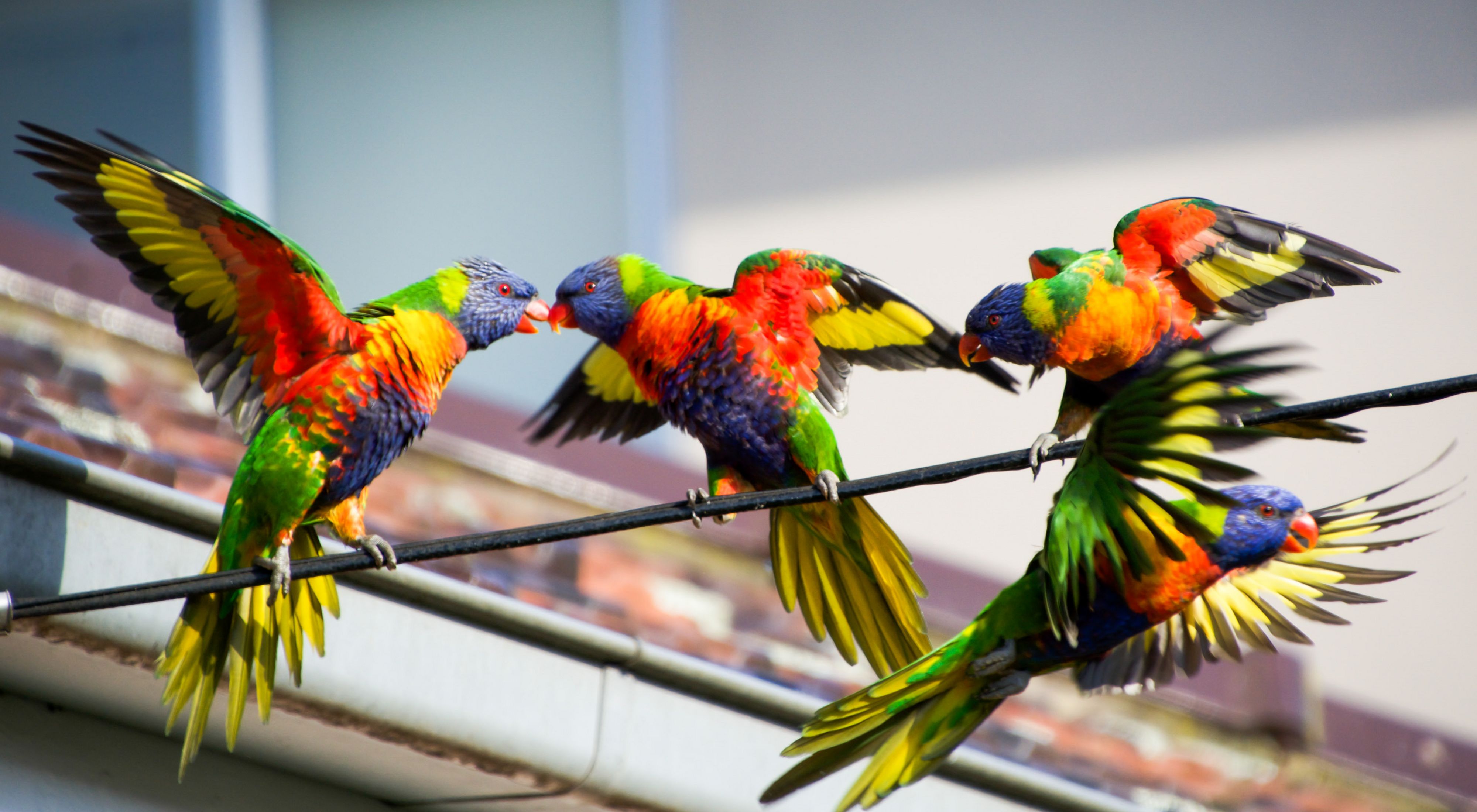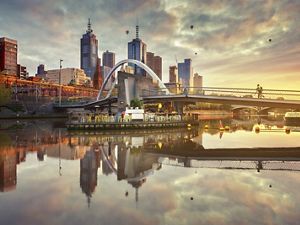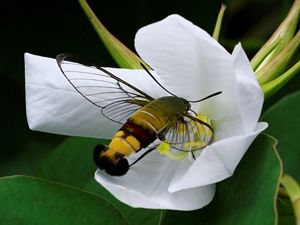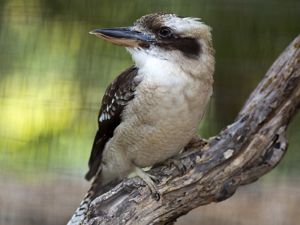Melbourne regularly ranks as one of the world’s most liveable cities but it’s not just hipsters and other humans who find the temperate climate of Melbourne so habitable. Despite the industrial, commercial and residential development that comes with being in a big city, Melbourne is still home to many species of Australian native animals. Some, like the Rainbow Lorikeets pictured above, do very well, even at the expense of others. Some struggle. That’s just one reason why retention and growth of bushland and other green areas in Melbourne is so important, along with trees’ ability to provide cooling summer shade and healthy, breathable air.
Our partnership with Resilient Melbourne includes developing the Melbourne Metropolitan Urban Forest Strategy to help plan for a greener Melbourne.
Crimson Rosella
What’s crimson, once was green. That’s right, as young Crimson Rosellas emerge from the nest, they are blue and green. As they mature, their juvenile green feathers are slowly replaced by bright crimson red ones. Like nearly all parrots, they nest in hollows in the limbs or trunks of mature trees.
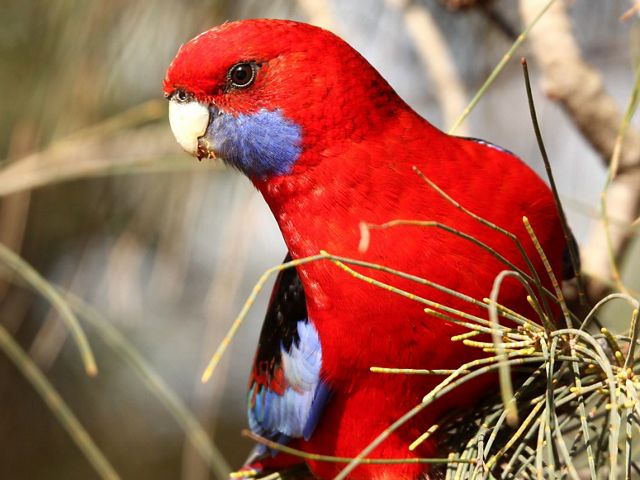
Eastern Yellow Robin
These delightful little birds occur in a wide variety of habitats in eastern Australia from wet rainforests to dry woodlands. Their adaptability means they survive quite well in urban parks and gardens like those in Melbourne.
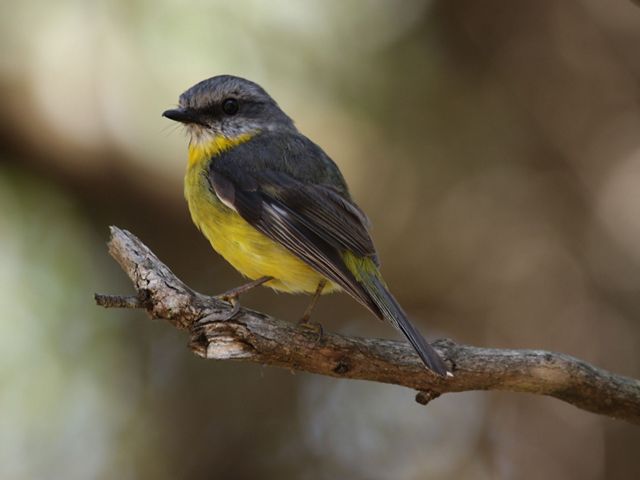
Common Ringtail Possum
One of two species of possum found in Melbourne, ringtails cause less problems for their human neighbours than their noisier relatives, the Common Brushtail Possum. As their name suggests, ringtails possess a prehensile or grasping tail that helps secure their movements through the tree canopy. They rest during the day in a drey or spherical nest they build from leaves and bark.
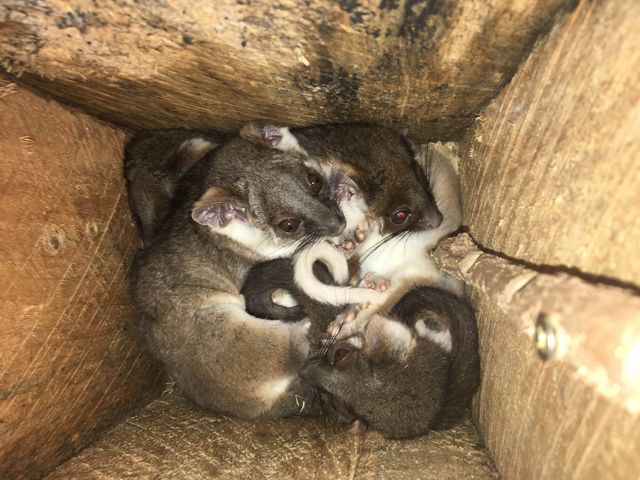
Cockatoo facts
Learn moreSulphur-crested Cockatoo
While many Melbournians might have become indifferent to the presence of these large and raucous birds, visitors marvel at the good fortune of being able to see such a beautiful bird in a highly urban environment. Sulphur-crested Cockatoos are very long lived. Some individuals have been known to live for more than 100 years! Learn more about these charismatic cockatoos.
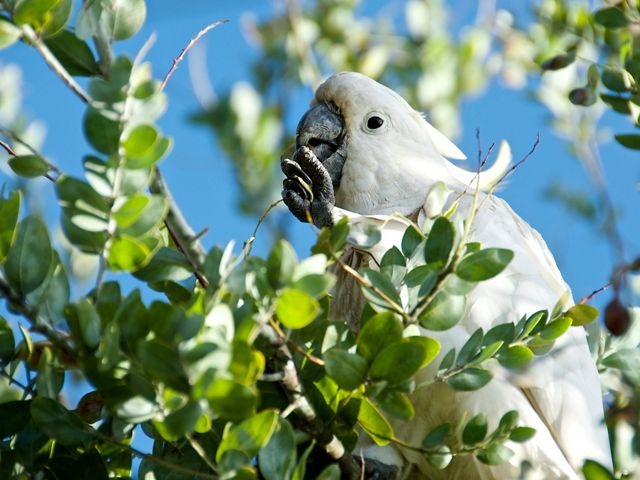
Eastern Banjo Frog
Easy to hear if not find, male Pobblebonks (as they are also known as), make a distinctive, explosive ‘bonk’ call while hidden in the floating vegetation of their swampy homes. They have a long breeding season from August to April. When not in the water, they spend their time inside their burrows near the water’s edge.
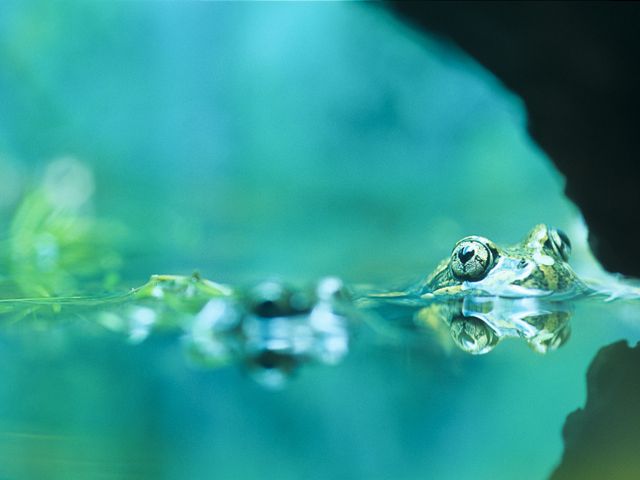
More about Australian animals
Get more great facts and other information about Austraila's unique animals
